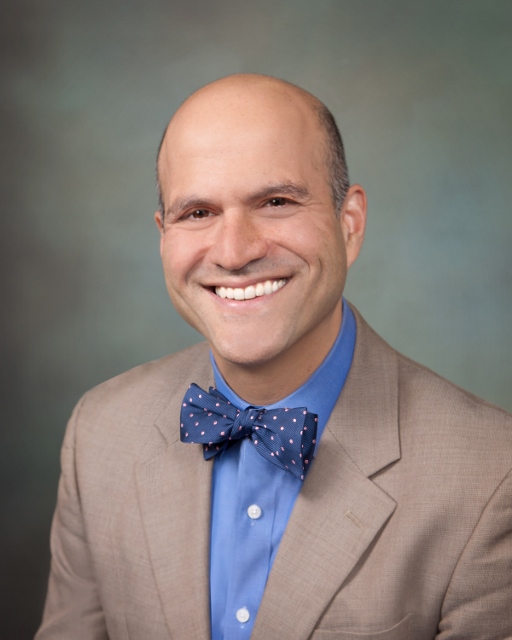In June, Farzad Mostashari, MD, the former National Coordinator for Health IT, announced the launch a new company designed to partner with independent primary care physicians to form and join accountable care organizations.
Aledade aims to provide physician partners all the tools necessary to create an ACO, from startup costs to technological infrastructure and in-office consulting and support. The company won't charge partnering physicians up-front fees, but will share the savings generated by the ACO —Aledade will take 40 percent, the physicians will retain 60 percent.
Backed by health IT venture capital firm Venrock, the new company is focusing first on creating ACOs in a few states, but has the ultimate goal of creating a replicable, nationwide model for independent, physician-led ACOs.
Below, Dr. Mostashari discusses his career so far, the launch of his new company and his goals, both for Aledade and the healthcare industry in general.
Question: What was the impetus behind the formation of Aledade — am I saying that right?
Dr. Farzad Mostashari: It's Aledade, Alla-DADE.
Q: Alla-DADE.
FM: Exactly. So, my whole career has been about population health, and finding a way to use data and technology to improve population health. For too long, there's been one missing ingredient — the business case for population health. Without that, the technology is necessary but not sufficent. As my time at the ONC was coming to a close, I got really interested in 'Where is there a business case for keeping a patient healthy, keeping the whole population healthy?' I was looking for where there was that accountability for total cost and quality of care.
What is exciting is there is a rapidly growing segment of American healthcare that's moving in this direction, not necessarily from a technology point of view but from a business point of view. [After the ONC] I went to Brookings Institute, where they originated this idea of an accountable care organization. There, I was able to dig in and research and see where the gaps were, and what would make [ACOs] successful. One gap I saw was in the area of independent, physician-led ACOs. They have so many great assets, like established relationships with patients and the agility that comes with a small practice, but what they don't have is startup capital, and in many cases they lacked the IT infrastructure or the boots on the ground for the quality improvement measuring. And I thought, 'Heck, I could give them that.' We could create a company to expand the idea of an ACO to people who have not had an easy way to access it by giving them turnkey solutions to form successful ACOs.
Q: This is a big move, from large government agencies and nonprofit organizations to a startup.
FM: In some ways, it's obviously very different and in some ways it's incredibly familiar and feels like a continuation. I was remarking just the other day that I feel like I've been training for this my whole career. When I was with the government, there were several "startup" opportunities where I took an initiative from zero and grew it. At the ONC, I did the growth phase where I took a shop of 30 people and rapidly scaled it up and put $2 billion to work. Everything you do has to matter. At the ONC, we were "the office of no Christmas" [Laughs] because there was that feeling that if you didn't move the ball forward every day, then you've lost a day. I love that feeling.
The difference [at Aledade] is that you have to pay attention to the business case and the business model. I like it, though. The clarity of value creation is quite refreshing.
Q: What is your ultimate goal with Aledade in one year, or in five years?
FM: In one year, I hope to have successfully demonstrated positive trends in population health for some very different geographical areas. Right now, we're looking at Arkansas and Delaware and maybe Maryland and exploring getting off the ground there and making [ACOs] available to small primary care physicians.
After five years, my hope is to make this replicable and scalable across the country while taking into account local variations. There's a common core of learning and best practices and technology and analytics that can help bring this to scale so the 20th ACO will have the advantage of everything learned in the first 19.
Q: What kind of feedback or response have you gotten since you announced the company in June?
FM: One of the things that's been great is that I've heard from folks in the trenches, 'Yes, this is the obvious thing to do' and others who have said to me, 'If I wasn't doing what I'm doing I would do what you're doing.' It's very gratifying, but the most important thing is the feedback I've gotten from the independent physicians. In just a few weeks we already have 20,000 Medicare lives committed from primary care doctors who care for them and who have said, 'Yes, let's do this.' That has been the most gratifying testament to our idea.
Q: Do you still wear a bowtie to work?
FM: [Laughs] I must admit that now, some days, I am in jeans and flip-flops. But when we go out to meet clients, yes, the bowtie is in place.
More articles on Dr. Farzad Mostashari:
Dr. Farzad Mostashari's New Startup Will Help Independent Physicians Form ACOs
26 of the Smartest People in Health IT
25 Recipients of Becker's Healthcare 2014 Leadership Awards

